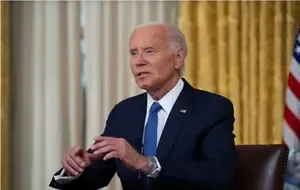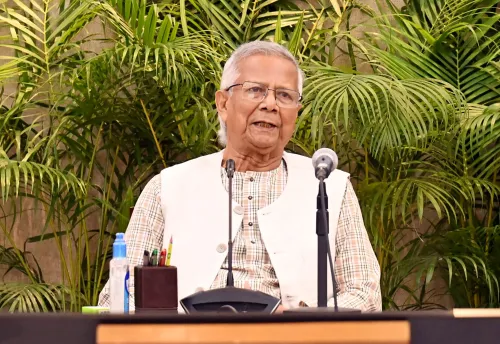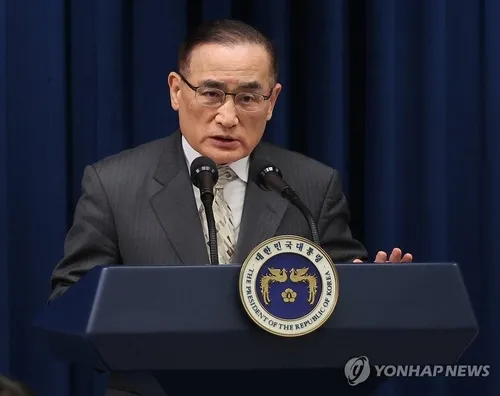Biden Administration Introduces New Restrictions on AI Chip Exports

Washington, Jan 13 (NationPress) The Biden administration on Monday revealed additional restrictions on Artificial Intelligence (AI) chip exports as the final effort to prevent advanced technologies from reaching China, Russia, and other 'countries of concern' due to national security issues.
Just a week before the end of its term, the administration published an interim final rule that exempts 20 key US allies and partners, including South Korea, from chip sale restrictions, while imposing limitations on the computational power that other nations can procure.
Secretary of Commerce Gina Raimondo stated, 'This policy will help build a trusted technology ecosystem around the world and allow us to protect against the national security risks associated with AI, while ensuring controls do not stifle innovation or US technological leadership.'
The 20 allies and partners comprise Japan, Australia, Canada, Germany, France, and New Zealand. Organizations that meet strict security and trust criteria and are based in these nations can achieve 'universal verified end user (UVEU)' status, as per the Commerce Department's Bureau of Industry and Security (BIS).
With UVEU status, these entities can allocate up to 7 percent of their global AI computational capacity—potentially hundreds of thousands of chips—across various countries.
Entities outside of close US allies without the verified end user status are still permitted to acquire substantial computational power—up to 50,000 advanced graphics processing units (GPUs). This cap can increase to 100,000 GPUs if a contract is established to comply with US export and related standards, according to Yonhap News Agency.
Entities that meet security criteria and are based in regions not classified as countries of concern can seek 'national verified end user' status, allowing them to purchase computational power equivalent to 320,000 GPUs over the next two years.
Chip orders with a total computational capability of around 1,700 advanced GPUs do not require a license and do not count towards national chip caps. The vast majority of chip orders fall into this category, including those from universities and medical facilities, as noted by the BIS.
The new rule is designed to ensure that advanced semiconductors sold internationally are not utilized by China, Russia, and other nations deemed concerning, while still allowing access for general-purpose applications in sectors such as telecommunications and banking.
'The rule both provides greater clarity to our international partners and to industry, and counters the serious circumvention and related national security risks posed by countries of concern and malicious actors who may seek to use the advanced American technologies against us,' stated National Security Adviser Jake Sullivan.
Reportedly, US AI chipmakers are opposed to the rule, as it may hinder their ability to sell products overseas amid a rising demand for AI applications globally.










